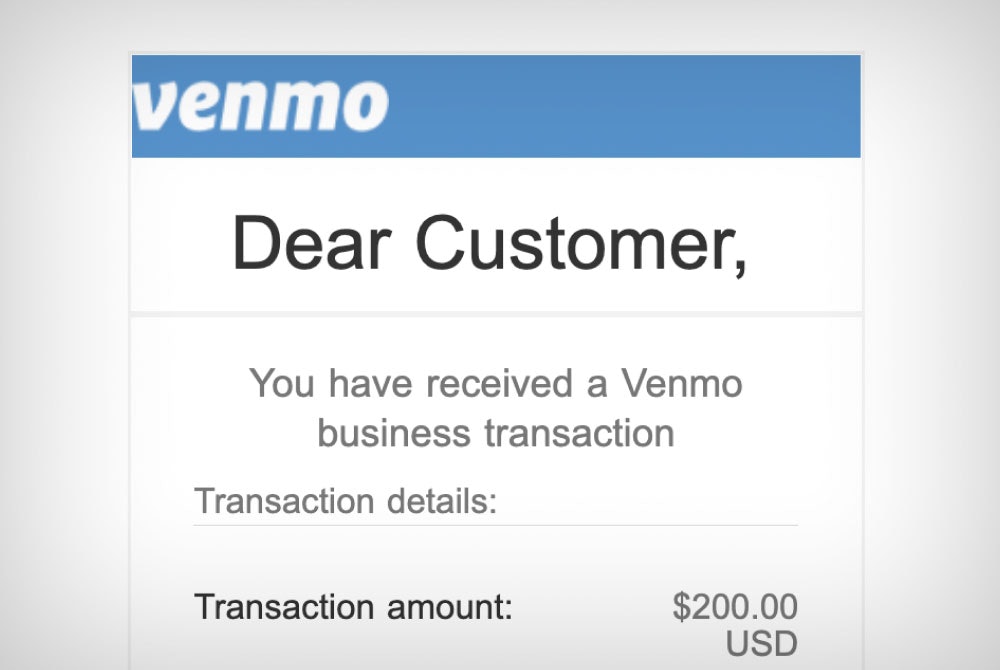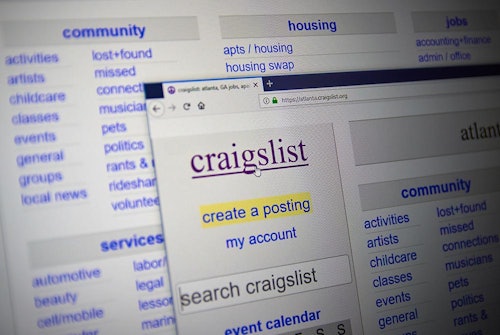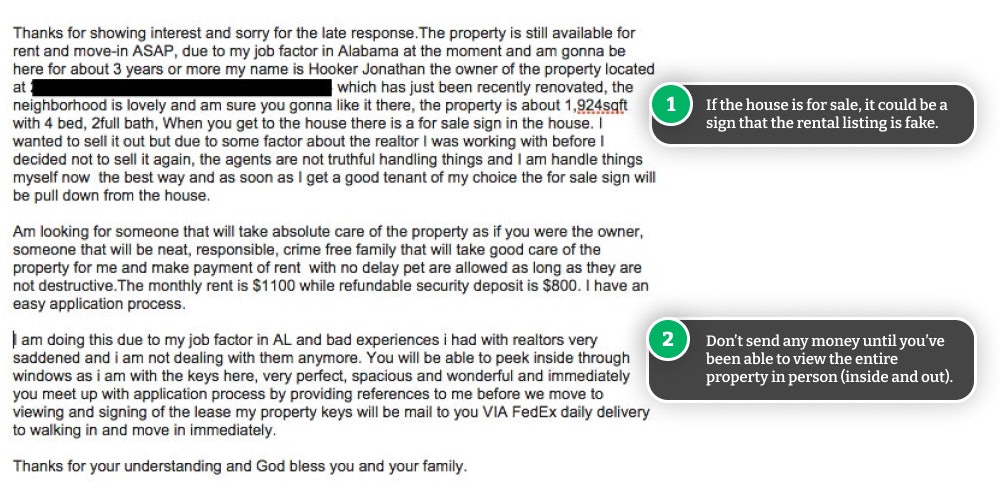Classified Websites In Depth
- What Are Classified Ad Scams?
- How to Beat Classified Ad Scams
- Seller and Buyer Scams
- Job Offer Scams
- Real Estate Scams
- Fallen Victim to a Classified Ad Scam?
One of the internet's most significant and earliest claims to fame was offering a digital replacement to the "Classifieds" section of the newspaper. While this has led to the rise of plenty of popular websites where users can find everything from jobs to antiques without leaving the house, it's unfortunately led to a twin rise in classified ad scams.
What Are Classified Ad Scams?
The internet may be the most powerful technological tool man has constructed—above all else, it's become a place to find things, whether that's information, jobs, friends, love, items, or anything in between.
As such, online yard sale websites like eBay and Facebook Marketplace and all-around classifieds site Craigslist account for some of the most heavily trafficked sites today. Craigslist alone boasts more than 50 billion views a month—eBay had more than 187 million registered users as of 2021, and Facebook Marketplace is a viable option for most of the site's more than 1 billion users.
With so many eyeballs—and wallets—in play, it should come as no surprise that these sites are also huge targets for scammers. In fact, in 2021 alone, there were more than 6,200 reports of classified scams responsible for more than $4.5 million in losses.
Generally, these deceptions involve someone posing as a:
- Buyer
- Seller
- Real estate agent
- Company offering a job
Unfortunately, none of these fabulous items, homes, or opportunities actually exist, and you won't find that out until it's too late.
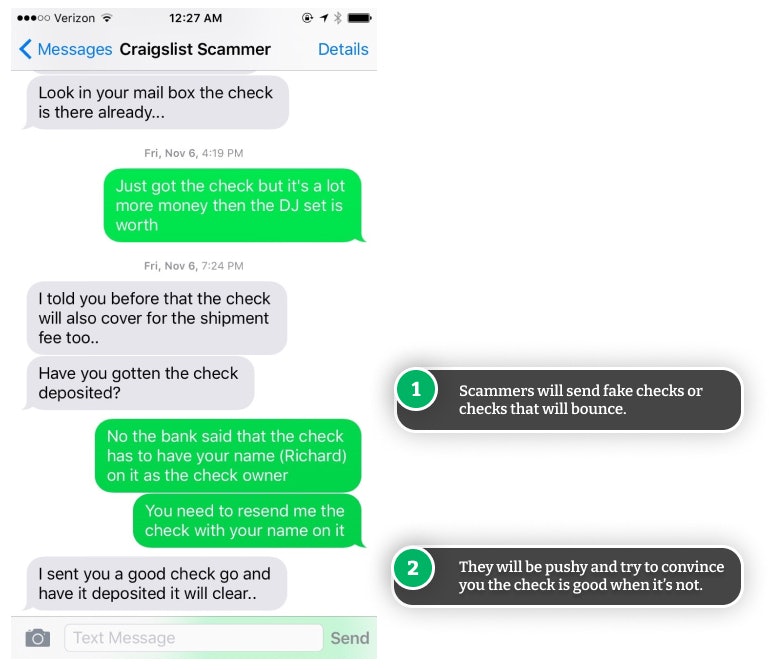
Scammers will often be after your money, but sometimes the schemes can be more insidious, with scammers also mining for personal information they could use to steal your identity.
So whether it comes to a job offer or a hot deal online, the old adage applies more than ever: Let the buyer beware.
The classifieds have always been a catch-all area, and the types of scams involving these types of websites are similarly diverse. Still, there are some types of classified scams that are more widespread than others.
How to Beat Classified Ad Scams
What makes classified ad scams so potent is the combination of the anonymity provided by the internet, the built-in interest of anyone searching through one of these sites, and the relatively regulation-free atmosphere these businesses operate in.
But it's possible to keep an eye out for these scams if you know what to look for. General red flags include:
- Poor or strange grammar
- Lack of pictures or professional pictures only
- The same post listed in different cities
- Vague or missing details
- Someone who's pushy, impatient, or uses pressure tactics to seal a deal
- Someone who's a poor or unreliable communicator
- Someone who refuses to use a payment method you prefer that is traceable or protected

Seller and Buyer Scams
Unfortunately, on most classified websites, you can be scammed as either a buyer or a seller.
Seller Scams
This class of classified scams involves fraudulent posts on yard sale websites or other online stores.
You'll find something that seems too good to be true: A pristine example of what you're looking for at a price you never imagined was possible. But that's because it isn't possible.
Scammers may be selling fake merchandise, broken merchandise, or possibly nothing at all, preferring just to take your money and run. More expensive items like cars, phones, or furniture may be sold online before they're fully paid off, saddling you with the leftover debt. And more elaborate deceptions may direct you to fake escrow accounts, where scammers steal your money and information.
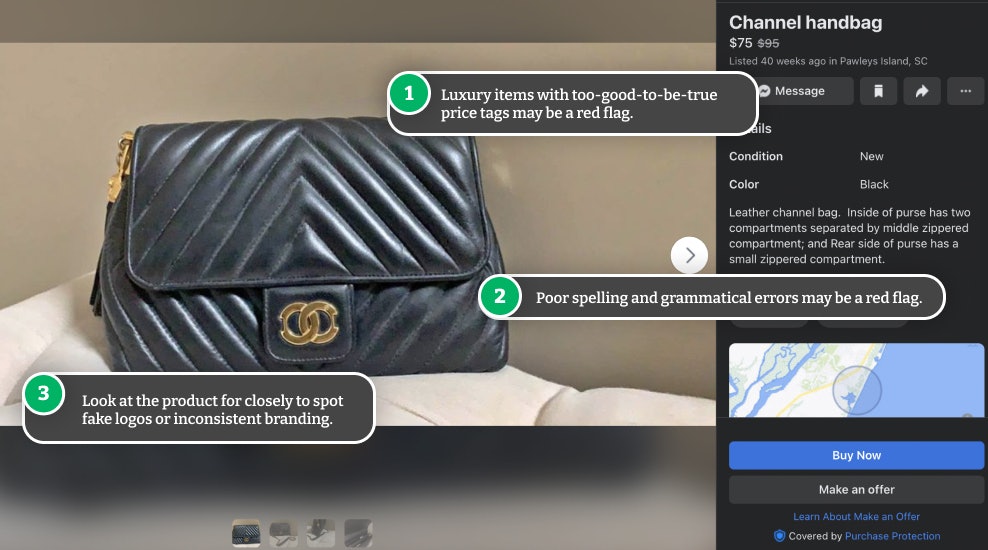
Buyer Scams
These classified ad scams may be a bit trickier to spot since people don't typically expect a "paying customer" to rip them off.
Yet, even an honest-seeming buyer can be in on the deception, often through the use of fake invoices or tricky payment methods. Favorite devices of these types of scammers include:
- Money wiring services
- Cashier's checks (which will bounce after you send out the item)
- Incorrect addresses that allow them to get refunded through the website
- Faked credit card statements "proving" they paid for something
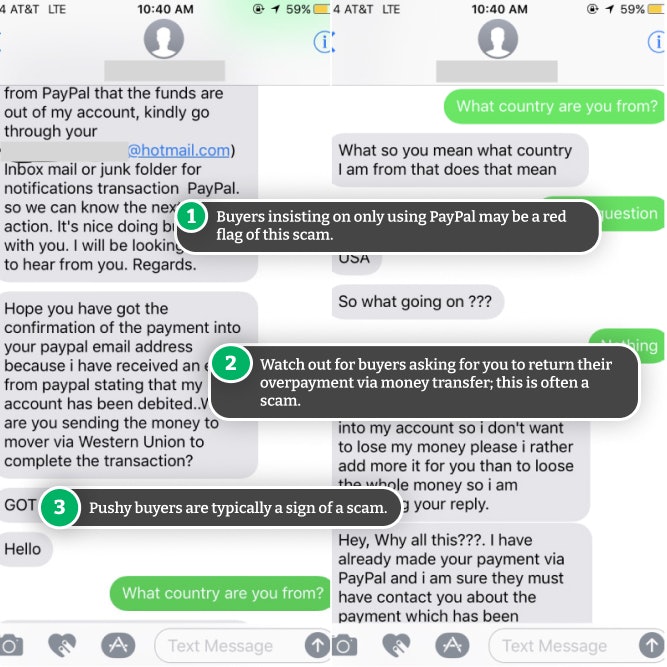
Red Flags of Buyer/Seller Scams
- Too-good-to-be-true prices or offers
- Any mention of a "guarantee," whether provided by the website or seller
- Using or asking you to use unorthodox payment methods, including money wires, Western Union, gift cards, cashier's checks, or escrow accounts
- Offers to buy something for more than you're selling it for
- Suggesting unusual ways for shipping or picking up an item
Tips to Beat These Classified Scams
- Don't accept strange forms of payment.
- Make all payments within the website or app, if possible.
- This typically comes with additional protection offered by the website.
- Only deal with local people.
- Meet in person/examine an object before purchasing it. Make sure to do this SAFELY by:
- Bringing someone else with you, if possible.
- Letting a close friend know where you are and what you're doing.
- Choosing a well-lit, heavily-trafficked area, like the parking lot for a grocery store that's open at the time.
- Research any sellers to see if they have previous complaints lodged against them.
Job Offer Scams
Classified sites can be great places to find odd jobs, but many of these postings may also be suspect.
Job offer scams may end with a scammer stealing your money and personal information through a fake application process. But they could also involve scammers pulling you into their deceptions, including pyramid schemes.
Other common scams that get advertised as jobs include:
- Reshipping job scams, where you're asked to receive packages at your home, replace the box, then send it off somewhere else
- Job placement service scams, where you'll be asked to pay a fee for a fake company to find you a job
- Any type of online work, where you could be jilted when it comes time for payment
Red Flags of Job Offer Scams
- A job provider who won't meet you in person or through video chat.
- Unverifiable company information.
- An immediate job offer.
- An immediate request for sensitive personal information.
- Get-rich-quick promises or little-to-no work involved.
- Any type of up-front payments.
Tips to Beat Job Offer Scams
- NEVER give out personal information, like your Social Security number, bank account or financial information, passwords, or PIN codes.
- Research any company or person thoroughly before following through.
Real Estate Scams
One of the most popular types of classified scams is the real estate scam.
These involve posts advertising rooms, apartments, and houses for sale or rent. The homes are typically all affordable and beautiful—and not actually available.
Scammers typically pose as landlords or friends of the homeowner and try to "justify" their too-good-to-be-true posting with claims of being out of town or dramatic sob stories. They might steal any information you fill out on a housing application and charge you for everything from that same application to months of advanced rent, possibly all without ever meeting you in person or letting you into the house for a tour.
Red Flags of Real Estate Classified Scams
- A seller or landlord that's out of town/won't meet you in person.
- Over-the-top sob stories/dramatic reasons to explain the great offer.
- Asking for money before you see the property.
- Asking for advanced rent payments.
- Telling you that you need to act fast or using other pressure tactics.
Tips to Beat Real Estate Scams on Classified Sites
- Insist on visiting the property with the landlord before signing anything.
- NEVER give out personal details like your Social Security number, bank account, or financial information.
- Confirm through a third party that the property is actually for rent/sale.
Fallen Victim to a Classified Ad Scam?
If you think you've been scammed, there are still some actions you can take.
First, you can—and should:
- Report the scam to the website or app the fraud took place on.
- Block or flag the scammer through the website or app.
- Figure out how to get your money back.
If you gave away anything other than money—especially personal or financial information—you should immediately:
- Freeze any accounts connected to the website in question.
- Contact your bank and credit card companies about the incident.
- Cancel your current credit and debit cards and open new ones.
- Change your passwords and PINs.
- Report the incident to:
- The Federal Trade Commission.
- The Internet Crime Complaint Center (IC3).
- Possibly create an IRS Identity Protection PIN.
- Go through the steps to recover from identity theft.
Depending on the type and severity of the scam, you may even consider contacting your local authorities.
Scams Relating to Classified Websites
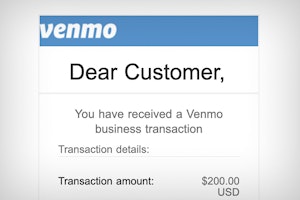
Selling on Facebook Marketplace? Beware of Fake Venmo Emails
Scammers are sending fake Venmo emails to Facebook Marketplace sellers in an attempt to steal login information and money.

Beware of Fake Cashier's Checks in Craigslist Transactions
Beware of buyers on Craigslist who only want to pay for your item with a cashier's check, then overpay you for your items—they're trying to steal money from you.

Fake Escrow: Craigslist Users Beware of This Common Scam
Escrow services are supposed to keep your money safe, but in this Craigslist scam, these escrow sites will do more damage than good.

Avoid Paying for a Pet via a Cash App Deposit—It's a Scam!
Keep your money safe by only paying for your new pet once you have the pet in your possession and avoid using Cash App.
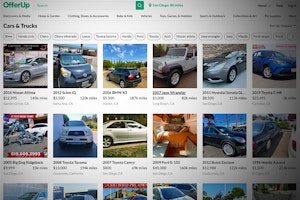
OfferUp Car Scams: Red Flags to Look Out For
Buying a car on OfferUp may be a cheaper option, but it doesn't come without risks.

Common eBay Motors Scams & How to Avoid Them
Don't fall victim to eBay Motors scams. Know the red flags, such as not being able to see the car in person first, a pushy seller, or a strange payment method.

Minimize Your Risk of Falling for Online Puppy Scams
Stay cautious when buying pets from private sellers online—many listings could be fake with scammers attempting to steal your money.

How to Buy a Used Car Safely: Protection From Used Car Scams
Buying a used car from a private seller can save you money, but it can also make you vulnerable to various scams. Protect yourself and your money from used car scams.

Craigslist Rental Scam: What It Is and How to Beat It
In this Craigslist rental scam, potential renters send money to the scammer before seeing the property only to realize the listing was fake and lose their money.

Overpaid on a Craigslist Sale? You May Be Involved in a Scam
Getting more money than you've asked for may seem great, but it could actually be part of a scam to steal your money.
Guides Relating to Classified Websites

Beat eBay Scams and Stay Safe When Shopping Online
Whether it's a counterfeit product, a sketchy seller, or a price too good to be true, eBay scams are widespread, so it's important to know how to protect yourself.

How to Report Craigslist Scams and Protect Your Money
Craigslist scams are more common than we'd like, but there are steps to take to help keep yourself (and others) safe.

10 Essential Actions to Take to Stay Safe Online From Scams
Scammers and hackers are everywhere online, but that doesn't mean we need to disconnect. These tips will help you stay safe online.

Beat Craigslist Scams and Stay Safe When Buying or Selling
Avoiding Craigslist scams is sometimes as easy as not clicking on any links or only accepting cash payments, however, scammers are finding new ways to trick and defraud you.

9 Things to Do To Avoid Bounced Checks: Best Practices
While paper checks are not as common as they used to be, they are still a fairly common form of payment. However, they may not be the safest way of receiving funds.
News Relating to Classified Websites

Urgent CDC Warning: Eye Drops Linked to 3 Deaths, Loss of Vision
The CDC is warning eye drops users of a rare bacterial infection from 2 brands of eye drops. The infection is resistant to antibiotics and has resulted in the loss of vision, loss of eyeballs and the death of 3 patients.

Banks May Refund More Zelle Scam Victims in 2023
Zelle scams have reached a serious volume. New reports suggest that banks are looking at new refund protections for customers in 2023.

Optus Data Breach - One of the Worst Cyberattacks in Australia
Hackers have gained access to 9.8 million customer records from Optus in Australia, exposing personal information such as driver licence, medicare and passport details.

Roe vs. Wade Overturned: Abortion Rights in Your State
Find out what the overturning of Roe vs. Wade means for abortion rights in your state.
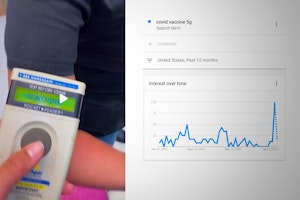
Searches for "COVID Vaccine 5G" Hit All-Time High, But Microchips Definitely Not in Vaccine
The number of people searching for the term "COVID vaccine 5G" on Google has just hit an all-time high, but there's one way to be sure that there are no microchips.
